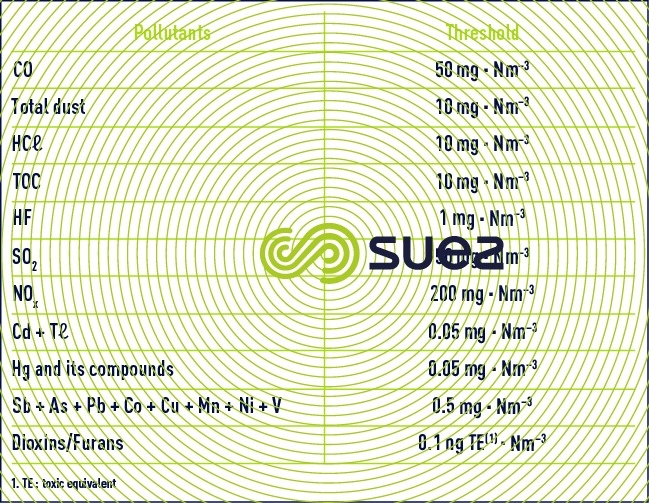processes involving flue gas treatment downstream from the thermal processes
Reading time:All the processes described above :
- dedicated incineration;
- pyrolysis;
- thermolysis;
- co-incineration.
require a downstream unit for processing the gas effluent before making any discharge into the atmosphere. This discharge is governed by regulations. At present, in Europe, the applicable regulation is the European directive of the 4th December 2000 (table 14), enacted in French law on the 20th September 2002 (see also section regulations).
As already discussed, the volume of flue gases to be processed (table 10 in dedicated fluidised bed incineration: the degremont® thermylis-htfb incinerator) varies significantly (5,000 to 15,000 Nm3 ·h–1 per tonne of DM) and this volume is mainly produced by :
- excess air used (O2 ballast and especially N2) and the quantity of water injected (dry solids content of the sludge introduced) thereby making pyrolysis more attractive than incineration and sludge pre-drying, regardless of the process applied;
- the type of sludge processed and, especially, its OM content which increasesthe volume of combustion products;
- whether or not dilution air (cooling) is used in the flue gas processing line



Bookmark tool
Click on the bookmark tool, highlight the last read paragraph to continue your reading later












